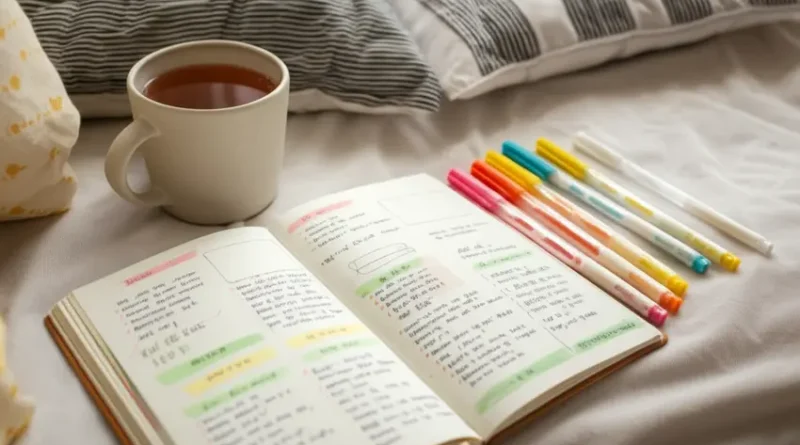How Journaling Can Improve Your Mental Well-being
Journaling is more than just a way to document your day-to-day life; it’s a powerful tool that can significantly enhance your mental well-being. In this post, we will explore the myriad benefits of journaling and how it serves as a conduit for self-reflection, emotional processing, and even stress reduction.
Many people have experienced periods of their lives when thoughts and emotions become overwhelming. This is where the art of journaling can come into play. Writing down your thoughts can help you clarify feelings, recognize patterns that may lead to stress, and ultimately support your mental wellness journey.
The Benefits of Journaling
- Emotional Expression: One of the primary benefits of keeping a journal is the safe space it creates for expressing thoughts and feelings. When we write down our emotions, we are giving them a form; thus, releasing some of the weight they carry. This emotional liberation can be quite cathartic, allowing for a clearer mind.
- Self-Reflection: Journaling facilitates self-reflection, providing the opportunity to look back on past experiences and understand how they affect present behavior. This insight is crucial for personal growth and can reveal hidden patterns of thought or behavior.
- Stress Reduction: Many studies indicate that journaling can contribute to reduced stress levels. By articulating worries on paper, you transfer some of the mental burden into a physical format, allowing for better processing of these thoughts and emotions.
- Problem Solving: Writing about a particular challenge can lead to clearer thinking and more creative solutions. As you put pen to paper, ideas can flow. Journals often serve as brainstorming spaces where you can work through obstacles more effectively.
- Enhanced Memory and Comprehension: Regularly documenting your life enhances memory and comprehension of various experiences. The process of writing helps in consolidating memories, which can be beneficial for stress management.
Types of Journaling
There are various styles of journaling, and the type you choose can depend on your personal needs and what you wish to achieve. Here are a few popular journaling methods:
- Gratitude Journals: Focusing on positive aspects of your life can shift your perspective from what you lack to what you have. Writing down things you’re grateful for can stimulate happiness and reduce feelings of anxiety.
- Stream of Consciousness: This method involves writing whatever comes to mind, without worrying about grammar or structure. It can serve as a powerful tool for emotional release.
- Goal Journals: Documenting your goals can be a motivational tool. It allows you to track your progress, reflect on your journey, and maintain focus on what you want to achieve.
- Art Journaling: For those who find verbal expression challenging, art journaling can be an outlet for creativity. It can combine sketches, doodles, and collages alongside written entries.
How to Start Journaling
If you’re new to journaling, don’t worry about making it perfect. Here are some tips to get started:
- Choose a Medium: Whether you prefer a traditional notebook, a digital app, or even audio recordings, select the medium that feels most comfortable for you.
- Set Aside Time: Dedicate a specific time each day or week to journal. Even five to ten minutes can be beneficial.
- Be Authentic: Write honestly and openly. This is for your eyes only, so don’t hold back.
- Feel Free to Explore: There’s no wrong way to journal! If one method isn’t resonating with you, try another until you discover what works best.
Remember, journaling is a journey, not a destination. The benefits enhance over time as writing becomes a consistent part of your mental health toolkit.

